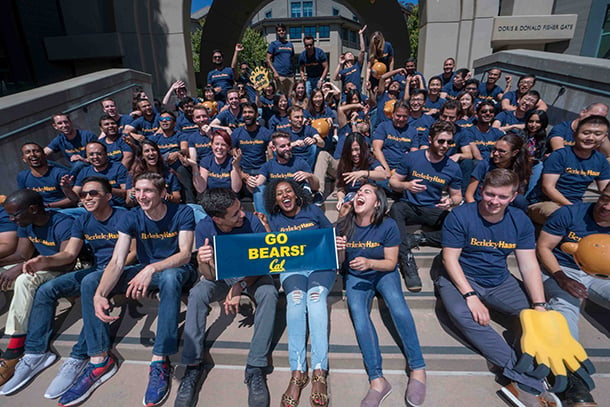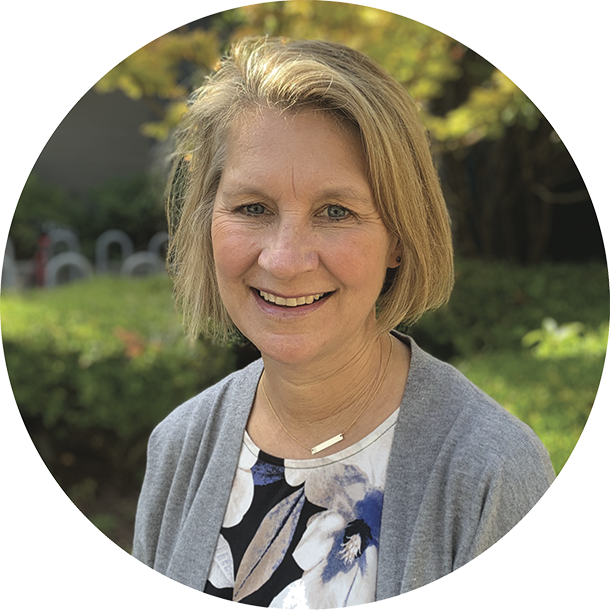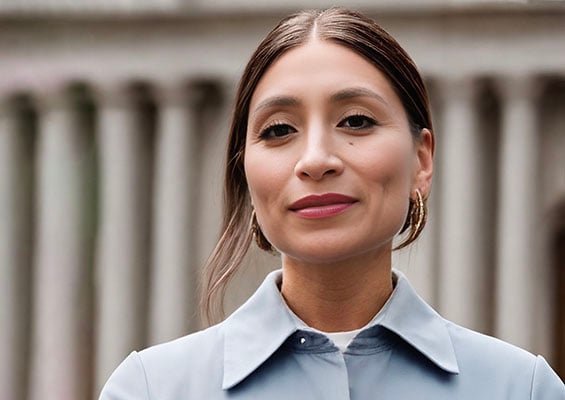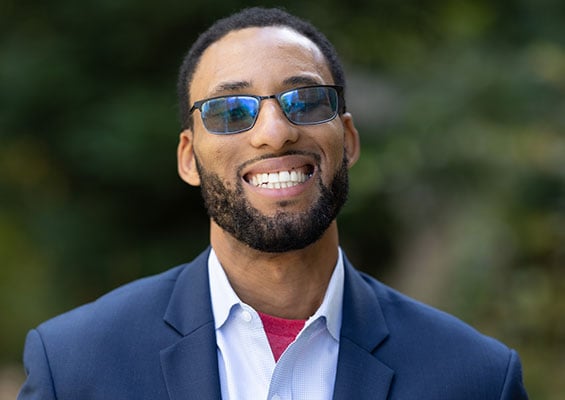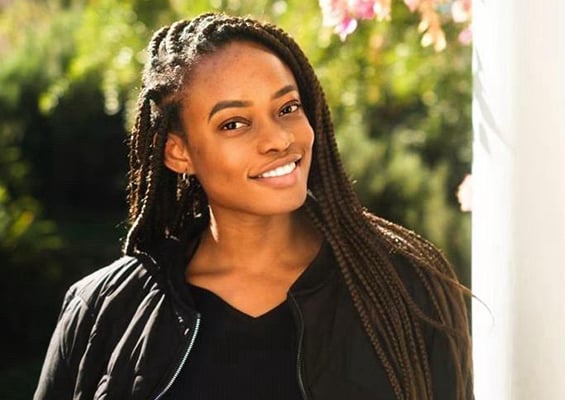What Nuhamin Woldemariam, MBA 22, remembers best about landing in Chicago from Addis Ababa at age six, and speaking no English, is that the Windy City’s air was so humid she felt she could hardly breathe.
She also remembers hating American food. Neither pizza nor Happy Meals® appealed to her, not even with the toy. “I just wanted Ethiopian food,” she says.

But through the journey of assimilation, Nuhamin adjusted, learning English, graduating from Chicago’s Northside College Prep, then DePaul University with a degree in business management. Her early career was in training and instructional design at the Leo Burnett agency and then PricewaterhouseCoopers.
Getting on the corporate culture track
Her aha moment–the experience that showed her what she really wanted to do–was when, as a consultant, she was at a client meeting with a company that wanted to develop onboarding training.
“Ninety percent of the executives we interviewed were men who worked in the financial industry,” says Nuhamin. “The way they communicated was about who was the loudest, who spoke the fastest. I noticed that a lot of decisions were led with egos. They focused and invested in solutions that would make them look good and help save the company money in the long run. It would have been more advantageous for them to focus issues dealing with the people in the organization. The culture of the organization is a key component of a company's success.”
Those insights drew Nuhamin increasingly down the corporate culture track. Today she’s at LinkedIn as a Global Program Manager on the Diversity, Inclusion, and Belonging team.
She’s also an evening & weekend MBA student at Berkeley Haas with her sights set on a top HR job eventually.
"I want to be well rounded in my business acumen and think the MBA is most likely to prepare me for this position."
Choosing Haas
Haas was the right choice, not only because the evening & weekend program allowed her to continue at LinkedIn, but also because “Berkeley aligns with my values,” she says. “Berkeley focuses on the whole person. In addition to the academic rigor, it’s also about whether, and how, you are challenging yourself to grow beyond yourself to help others. It’s about how you treat people.”
Nuhamin has a list of some 30 courses she’d like to take–leadership, people management, negotiations, corporate strategy–though she admits she can’t possibly take them all.
So far, one of her favorite courses has been Rebecca Portnoy’s Leading People course.
“I’ve had some experience in learning and organizational development,” she says, “but the best part of the course was seeing how others approach this practice and what they face in various industries. It allows me to think bigger.”
The toughest course, she says, was Data and Decisions.
“It’s about how you use statistics and other data to make better business decisions,” she says. “From the beginning, Professor Conrad Miller said the course isn’t designed to make us data scientists but for us to have a solid understanding as leaders and to be able to manage and support professionals in this growing field.”
Creating an environment of belonging
Nuhamin’s focus at Haas is on leadership and the field of diversity, equity, and inclusion (DEI).
“DEI isn’t about just people of color or veterans; it’s about creating an environment of belonging,” she says. “I’ve always been a connector, aligning people, creating economic opportunity.”
A key concept of DEI–which is called DIBs (diversity, inclusion & belonging) at LinkedIn–is something called allyship.
“It's about understanding your own power and privilege and a lot of that work deals with unlearning a lot of what we've been taught and comes to us consciously and unconsciously,” she says. “As we come to an understanding of the privilege we hold, it's about how we could use that to be better allies to others. This could range from race, ethnicity, religion, education, sexual orientation, economic class, citizenship status, ability, etc.”
At LinkedIn, Nuhamin developed an Allyship Academy that is globally focused.
“We have an Allyship program including 14 different countries,” she says. “so we need to talk about things like bias, cultural humility, power and privilege, and broadening our views. A lot of my work is about developing managers to be inclusive leaders.”
But, she emphasizes, DIBs isn’t about instant change; it’s about influencing.
Having the patience for change
“The work as a DIBs practitioner can be challenging because you don't see a major change in six months,” she says. “It doesn’t work like that. It takes patience. You are an influencer who works to develop others to see the value and practice of inclusive behaviors with their teams. And the work starts with yourself because everyone who has a pulse has biases. You can’t avoid them. You have to understand yourself, unlearn some of the things that you've been taught, so you can have a better understanding of how you can show up as a better colleague and manager.”
The biggest influence on Nuhamin was her mother.
“I know it’s an easy answer,” she says, “but it’s true. She was a single mom and she taught me to be solutions-oriented. Whenever we kids started crying over some problem she’d say, stop crying and find the solution. So whenever I have an issue, that lesson immediately clicks in and I ask myself, ‘What are three options that could solve this problem?’”




